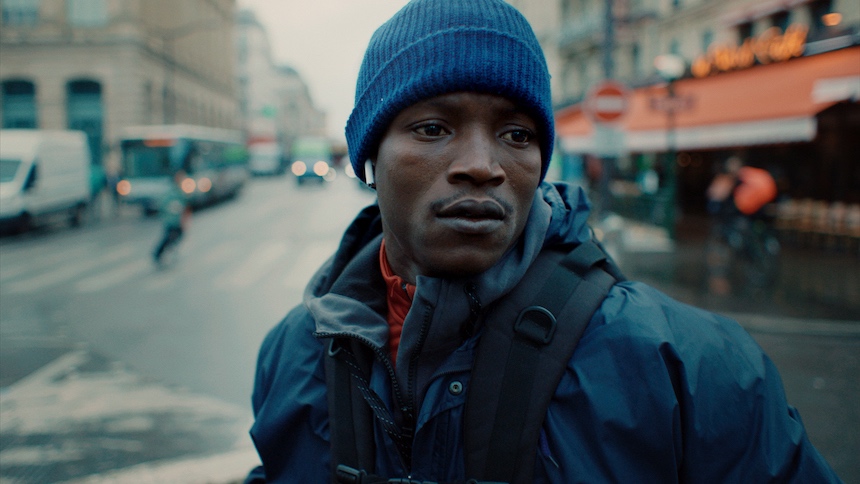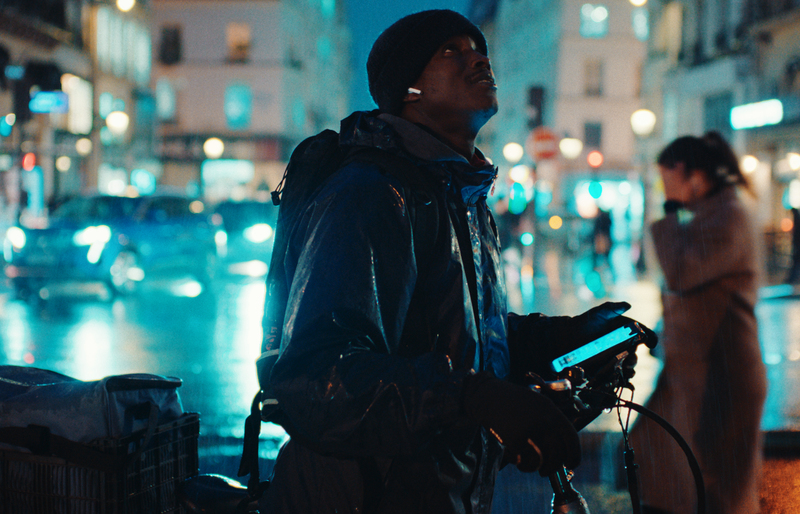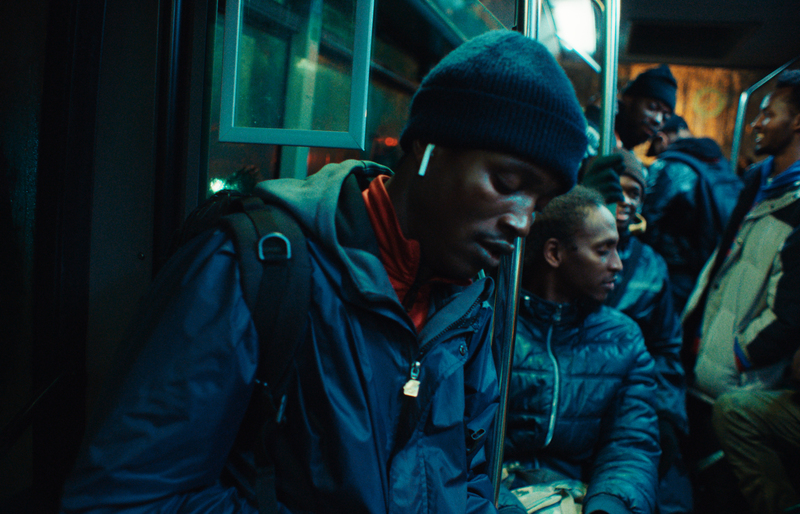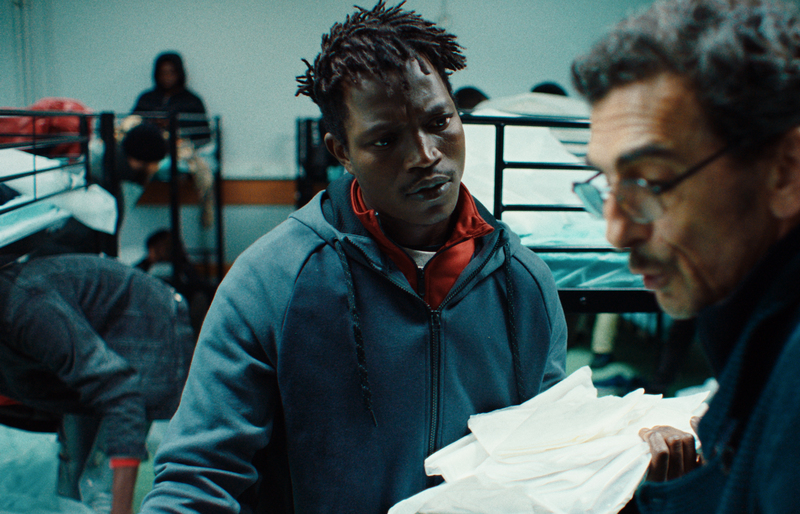Cannes 2024 Review: THE STORY OF SOULEMYANE Depicts Immigrant Experience as Intense Social Thriller
French director Boris Lojkine navigates the harsh realities of undocumented life in Paris, blending social realism with the tension of a high-stakes thriller.

French director Boris Lojkine unveils a tale of struggle and survival in his latest work, The Story of Souleymane, set in the buzzing metropolis of Paris.
The film delves into the life of an undocumented bike courier, capturing the grit and determination of those who exist on the margins of society, in a high-octane portrait of urban isolation and resilience.
Through Souleymane’s relentless pedaling across the city, Lojkine paints a vivid picture of the daily battles faced by the invisible undocumented workforce that keeps the urban machine running, highlighting their resilience and the stark realities of their precarious existence in high-octane portrait.
Lojkine’s work has been marked by an engagement with the lives of the marginalized. His first feature, Hope (2014), told the harrowing journey of African migrants en route to Europe, and his following film, Camille (2019), explored the life of a photojournalist in the Central African Republic. The Story of Souleymane continues this trajectory, focusing on the often invisible lives of gig workers in Paris waiting and struggling to carve out a new life on the European continent.
The Story of Souleymane opens with the protagonist, Souleymane (Abou Sangare), waiting anxiously for his asylum interview. The palpable anxiety and anticipation set the stage for a flashback that tracks his daily struggles two days prior.
Souleymane, like many of his peers, is caught in the gig economy’s unforgiving grasp, working for a food delivery app under another’s identity due to his undocumented status. This precarious situation leaves him vulnerable to exploitation by those who run the system as a human Ponzi scheme, perpetuating a cycle of dependency and abuse.
Lojkine takes a social realist refugee drama and redesigns it as a thriller on two wheels. Souleymane is squeezed in a pressure cooker of delivering food in a timely and adequate manner through busy Parisian streets, dodging pedestrians and cars. He is attempting to scrape together money for asylum paperwork, while learning a fictional backstory to pass as a political asylum seeker, and supporting his ill mother in Africa while his sweetheart drifts toward a new life back home. This relentless pace and constant danger amplify the film’s tension, turning Souleymane’s daily life into a high-stakes race against time and circumstances.
On top of the emotional and psychological drain of his labor, Souleymane must secure a bed in a homeless shelter each day in the middle of the night to avoid sleeping on the cold Parisian streets. The protagonist lives under relentless pressure, where each setback feels like a crushing blow and each small victory offers only fleeting relief in his last-ditch effort to secure the residency. This constant struggle underscores the precariousness of his existence and the high stakes of his daily life, making every moment a tense battle for survival and dignity.
Lojkine decided to cast non-professional actor Abou Sangare, who conveys a palpable sense of desperation coupled with a tiny spark of hope. The film’s supporting cast, primarily composed of real food delivery workers, further grounds the narrative in reality, offering an unfiltered look at the precariousness of their existence. This choice enhances the film’s authenticity, as the interactions and challenges faced by Souleymane and his peers resonate with genuine lived experiences, making The Story of Souleymane a powerful and raw portrayal of life on the margins.
Cinematographer Tristan Galand, known for his work on the Dardennes’ films, employs crisp handheld camera work that adds kinetic energy to the film, echoing the frenetic pace of Souleymane’s life and the rising stakes. The camera trails him through the city’s chaotic streets, capturing the rat race that defines his existence. Galand has a keen sense for building suspense as Souleymane navigates the busy city, further supported by Xavier Sirven’s heart-racing editing.
Lojkine continues his exploration of the lives of those on society’s fringes through a raw portrayal of hardship, focusing on the human cost of economic and social systems impacting the immigrant experience. The director tackles immigrant life through his unflinching yet compassionate lens, raising questions about identity, belonging, dilemmas, and the ethical complexities of immigration. He manages to pull it off without moralizing, infusing the film with the drive and tension of a thriller.
The film debuted at Cannes Film Festival in Un Certain Regard.










